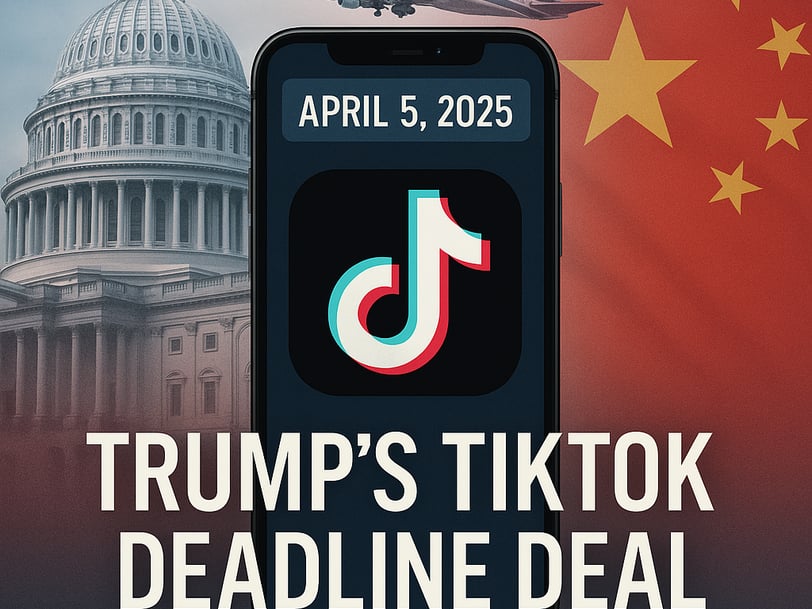Trump Confirms TikTok Sale Deal to Be Finalized Before April 5 Deadline
X TRENDS


As of March 31, 2025, U.S. President Donald Trump has announced that a deal to sell TikTok’s American operations to a non-Chinese buyer will be secured before the critical April 5 deadline, averting a potential ban of the app in the United States. Speaking aboard Air Force One on Sunday evening, Trump expressed confidence in the ongoing negotiations, stating, “We’re going to have a deal before Saturday—it’s going to happen.” This deadline, set in January when Trump assumed office, stems from a 2024 law aimed at addressing national security concerns tied to TikTok’s parent company, ByteDance, a Chinese tech giant. The law mandates that ByteDance divest TikTok’s U.S. business by April 5, or the app, used by roughly 170 million Americans, will face a nationwide shutdown.
Trump’s remarks signal a shift from his earlier hardline stance on TikTok during his first term, when he sought an outright ban over fears that the Chinese government could exploit user data or manipulate content for propaganda purposes. Those concerns, echoed by lawmakers across party lines, led to the Protecting Americans from Foreign Adversary Controlled Applications Act, signed into law by former President Joe Biden in April 2024. Initially, ByteDance faced a January 19, 2025, deadline to comply, but Trump, upon taking office, issued an executive order extending it by 75 days to allow more time for a resolution. His latest comments suggest that a deal is not only feasible but imminent, with “tremendous interest” from potential buyers.
Reports indicate that negotiations, led by the White House, are focusing on a consortium of U.S.-based investors and companies. Among the frontrunners are ByteDance’s existing non-Chinese stakeholders, such as Susquehanna International Group and General Atlantic, which could expand their ownership stakes. Tech giant Oracle is also rumored to be involved, potentially managing TikTok’s data infrastructure to ensure compliance with U.S. security standards. Other firms, like private equity powerhouse Blackstone, have surfaced as contenders, reflecting the high stakes and lucrative potential of acquiring a platform with such a massive American user base. Trump has even floated the idea of leveraging trade policy to seal the deal, suggesting last week that he might “reduce tariffs on China” if Beijing approves the sale—a pragmatic move acknowledging China’s necessary role in the transaction.
The looming deadline has intensified debates over TikTok’s fate, blending national security with economic and cultural considerations. For many of its 170 million U.S. users—nearly half the country’s population—TikTok is more than just an app; it’s a creative outlet, a marketing tool for small businesses, and a cultural phenomenon. Its brief ban in January, upheld by the Supreme Court before being reversed under Trump’s directive, underscored its significance, sparking both outrage and relief among users. Trump’s desire to “see TikTok remain alive” reflects this sentiment, though it’s tempered by pressure from some Republicans who insist that any ByteDance involvement post-sale would violate the 2024 law’s intent.
Uncertainty persists as the clock ticks down. While Trump has hinted at the possibility of further extending the deadline if needed, Democratic senators like Ed Markey, Chris Van Hollen, and Cory Booker have cautioned against relying solely on executive action, urging legislative backing to avoid legal pitfalls for companies like Apple, Google, and Oracle, which could face liability in enforcing a ban. Their proposed Extend the TikTok Deadline Act, which would push the cutoff to October 2025, remains stalled in Congress. Meanwhile, Trump’s optimistic timeline hinges on Beijing’s approval and the deal’s alignment with U.S. security mandates. As April 5 nears, the outcome will test Trump’s deal-making prowess and shape the future of one of America’s most influential digital platforms.
